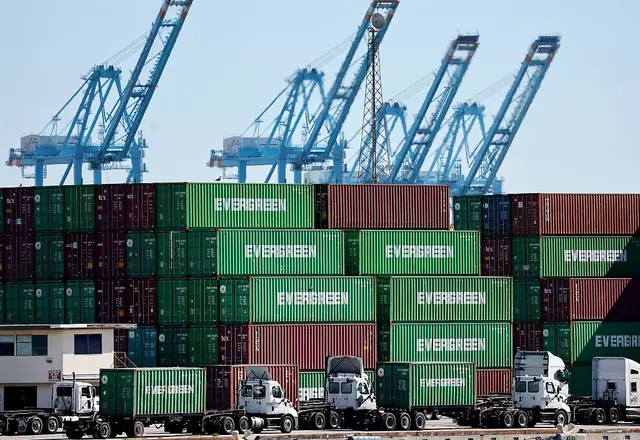The U.S. policies, including tariffs, which were aimed at decoupling the Chinese and U.S. economies, may ultimately not reduce the U.S.' dependence on supply chains linked to China, according to a paper presented at the Federal Reserve Bank of Kansas City's annual Jackson Hole conference Saturday.
The paper was written by Laura Alfaro of Harvard Business School and Davin Chor of the Tuck School of Business at Dartmouth College.
U.S. goods imports from China were valued at $203 billion during the first six months of 2023, a decline of 25 percent on the same period last year, according to data released by the U.S. Commerce Department.
Direct U.S. sourcing from China has decreased, with Vietnam and Mexico gaining in import share, according to the paper. However, the cost of imports from Vietnam and Mexico is also rising.
Meanwhile, Chinese firms appear to be finding ways to mitigate the impact, namely through increased exports to and foreign direct investment in Vietnam and Mexico.
"Even though the U.S. may be reallocating its sourcing and imports toward Vietnam and Mexico, it may de facto remain connected with and dependent on China through third-countries, including through Vietnam and Mexico," Alfaro and Chor wrote.
China's share of U.S. imports peaked at 21.6 percent in 2017 and has since fallen to 16.5 percent in 2022. The paper pointed the shift is largely the result of the U.S. government intentional policies.
Chinese Commerce Minister Wang Wentao had a meeting on Monday with U.S. Commerce Secretary Gina Raimondo, who is visiting China from August 27 to 30.
China is willing to work together with the U.S. to create a favorable policy environment for cooperation between the business sectors of both countries, Wang said during the meeting.
(CGTN)
 简体中文
简体中文

